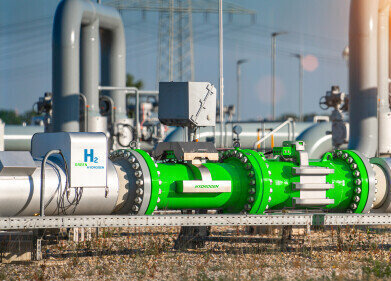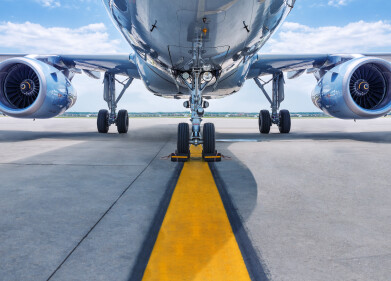Sustainable aviation fuel (SAF)
Can Air Travel Become Sustainable?
Aug 25 2021
Air travel is a major contributor to climate change, accounting for 2.5% of global carbon dioxide (CO2) emissions and 1.9% of greenhouse gas emissions, including methane and nitrous oxide. Studies suggest that overall, the aviation industry accounts for 3.5% of effective radiative forcing, a parameter used to measure the amount of energy being directed towards the Earth's surface and driving global warming.
A single plane ticket can have the same carbon footprint as a year of driving a gasoline-powered car, making air travel a considerable environmental burden. While air travel dropped during the COVID-19 pandemic, it’s expected to pick up again in the next decade. With climate change concerns mounting, airlines are under increasing pressure to reduce carbon emissions and chart a path to a cleaner and more eco-friendly future. Here’s how they’ll be doing it:
-
Sustainable aviation fuels
Sustainable aviation fuels (SAFs) will play a key role in helping the industry reduce emissions and transition towards a low-carbon future. Advanced biofuels manufactured from waste oils and vegetable feedstocks are already being used by aviation giants like Cathay Pacific, which has committed to net-zero emissions by 2050.
“Our net-zero pledge aligns with the requirements laid out in the UN’s Intergovernmental Panel on Climate Change (IPCC) and the Paris Agreement, and provides the focus we need in aligning our strategy – from fleet planning and carbon offsetting to further investment in Sustainable Aviation Fuel and the development of new technologies,” says Cathay Pacific Chief Executive Officer Augustus Tang.
-
Government initiatives
Government action is fundamental to sustainable air travel, with countries like Norway leading the pack. The Scandinavian nation recently announced that 0.5% of all aviation fuel must be sustainable, with a goal of 30% by 2030. By 2040 it plans to hit a target of 100% electric short-haul flights. Canada is another environmental leader, with the Great White North introducing a CAD$30 carbon tax per metric ton of CO2 released on domestic flights.
-
New aircraft technology
New aircraft technology will play an important role in bringing down emissions, with efficient long-haul twin-engine aircraft offering fuel savings of up to 20% per passenger on their four-engine predecessors. The use of alternative propulsion solutions such as electricity and hydrogen is also gaining momentum in small planes built to carry less than 100 passengers.
Want to know more about the exciting new technologies transforming the aviation industry, including the latest biofuel breakthroughs? Find out more from Koehler Instrument Company representative Dr. Raj Shah in ‘Recent Advances in the Sustainable Aviation Industry’.
Digital Edition
PIN 26.1 Feb/Mar 2025
March 2025
Analytical Instrumentation - Elemental Analysis for Quality and Process Control at Refineries, for Lubricants and Wear Metals in Engine Oils - Synthetic Lubricants: New Developments - Scaling...
View all digital editions
Events
Apr 08 2025 Birmingham, UK
Apr 08 2025 Kielce, Poland
Apr 08 2025 Ravenna, Italy
Apr 08 2025 Southampton, UK
Apr 08 2025 London, UK



















